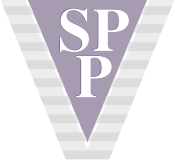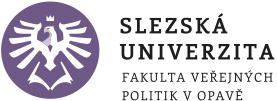Social Pathology and Prevention, 2016 (roč. 2), číslo 1
Editorial
EDITORIAL
Jitka Skopalová
Social Pathology and Prevention 2016, 2(1):7-8 
Articles
SOCIAL DISADVANTAGE: CHALLENGE FOR EDUCATIONAL SCIENCES AND EDUCATORS
Martin Stanoev, Dušan Janák, Kateřina Tvrdá
Social Pathology and Prevention 2016, 2(1):11-33 | DOI: 10.25142/spp.2016.002 
The aim of the theoretical/empirical study is the conceptual development of the concept of social disadvantage. Social disadvantage is a technical term as enshrined in the Act no. 561/2004 of legal code, on preschool, primary, secondary, tertiary technical and other training. According to the study authors, the importance of understanding this issue is currently growing. In practice, however, this term is associated with ambiguous interpretations. The study seeks to further develop and expand the findings of a case study of educational schemes of the towns of Krnov and Sokolov, which was focused just on the issue of education of socially disadvantaged...
EFFECTS OF PREVENTIVE MENTAL HEALTH IN SECONDARY SCHOOLS
Bror Just Andersen
Social Pathology and Prevention 2016, 2(1):35-45 | DOI: 10.25142/spp.2016.003 
In the research project in my doctoral thesis I wanted to test the effects of a short preventive mental health program in secondary school. In 2007 there was established a longitudinal study with a test group and a control group (N=1671), built upon Solomon's design. Data was collected through questionnaires prior to intervention and at 1, 6, 12, and 24 months after the intervention. Effect sizes on the various indices are estimated in terms of (a) differences in improvements of total percentage scores and (b) Cohen's d. From t0 to t1, t2 and t3 the intervention group showed significantly greater progress in 6 out of 7 knowledge indexes, and 12 months...
THE LOCAL STRATEGY FOR THE SUPPORT OF FAMILY LITERACY
Alica Petrasová
Social Pathology and Prevention 2016, 2(1):47-58 | DOI: 10.25142/spp.2016.004 
The family literacy concept makes explicit what has been implicitly understood, and recognizes the family as an institution for education and learning and the role of parents as their children's first teachers. The starting point for the development of human resources within a culture is the family. Families provide an intergenerational transfer of language, thought, and values to the minds of their new-born infants and throughout the formative years of their children's lives. Families provide initial guidance in learning to use the cultural tools that will be valued and rewarded within the culture. Families interpret the culture for their children,...
Report
A WORLD OF CONNECTIONS! SCHOOL PSYCHOLOGISTS AS COMMUNICATORS, COLLABORATORS, ORGANIZERS AND MENTAL HEALTH ADVOCATES
Marta Kolaříková
Social Pathology and Prevention 2016, 2(1):61-63 | DOI: 10.25142/spp.2016.005 
Book review
PRESCHOOL CHILD IN SOCIALLY EXCLUDED ENVIRONMENT
Eva Šotolová
Social Pathology and Prevention 2016, 2(1):77-80 
Kolaříková, M. (2015). Dítě předškolního věku v prostředí sociální exkluze. [Preschool Child in Socially Excluded Environment]. Opava: Silesian University in Opava.
Example of good practice
DEPO LOW-THRESHOLD CLUB DEPO IN COEXISTENCE VILLAGE
Silvie Quisová
Social Pathology and Prevention 2016, 2(1):67-73 | DOI: 10.25142/spp.2016.006 


